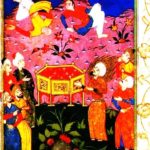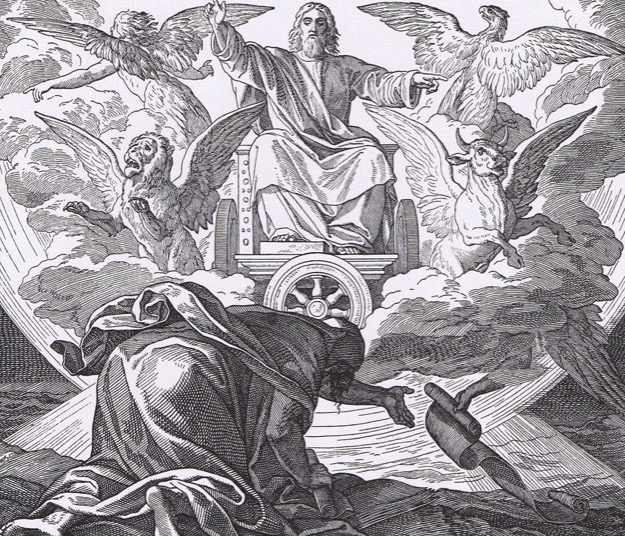The surah Al-Qalam, or The Pen, combines revelations from quite different points in Muhammad’s career. In fact, most of it really must have a much later date. But the themes of the beginning confirms its initial early date.
This was probably revealed in two parts, right where there is a break today where an additional revelation was added.
This was the first revelation:
- By the pen and what they compose,
- You are not, by the favor of your Lord, one djinn-possessed.
- And indeed, for you surely is a reward unfailing,
- And indeed, you surely are of high morality
- So you will see, and they will see
- Which of you is the afflicted.
Allah begins with shirk, as he does so often, and asserts again that Muhammad isn’t possessed by a djinn, while blasting those that are insulting him.
Then, in the second revelation he gets specific:
- And do not obey every mean swearer,
- Slanderer, going about with gossip,
- Forbidder of good, guilty transgressor
- Ignoble, and moreover, an illegitimate (bastard).
- Because he has wealth and sons,
- When Our Signs are recited to him, he said, “Legends of the ancients!”
- We will brand him upon the muzzle!
This is still addressing Muhammad because it’s a second-person singular masculine “you” here. The phrase “mean swearer,” though, is interesting, because it implies that someone took an oath to follow Muhammad’s teachings and then quickly rejected them. Muhammad’s early followers took oaths of allegiance and belief, some of which are explicitly recorded in various ahadith. So if this is Abu Lahab, as it seems to be, this puts him in a different light. The “wealth and sons” (or “wealth and children including at least one son”) seems to imply that it’s him, and Muhammad’s main early adversary is remembered as Abu Lahab, so I’m inclined to identify him here, even though we lack clear evidence from the ahadith.
This is the second time that we get Abu Lahab’s specific criticism recorded, and that is that Muhammad is only repeating ancient legends, or stories of former people. Muhammad goes straight after the man’s legitimacy, slurring his mother–something that also points to Abu Lahab, because he was the only child of Abd al-Muttalib by Lubna bunt Hajar. This would have been an insult to Abu Lahab and no one else in Banu Hashim. And it also certainly explains the lasting hatred between the two men, as Abu Lahab would not soon forgive this insult.






